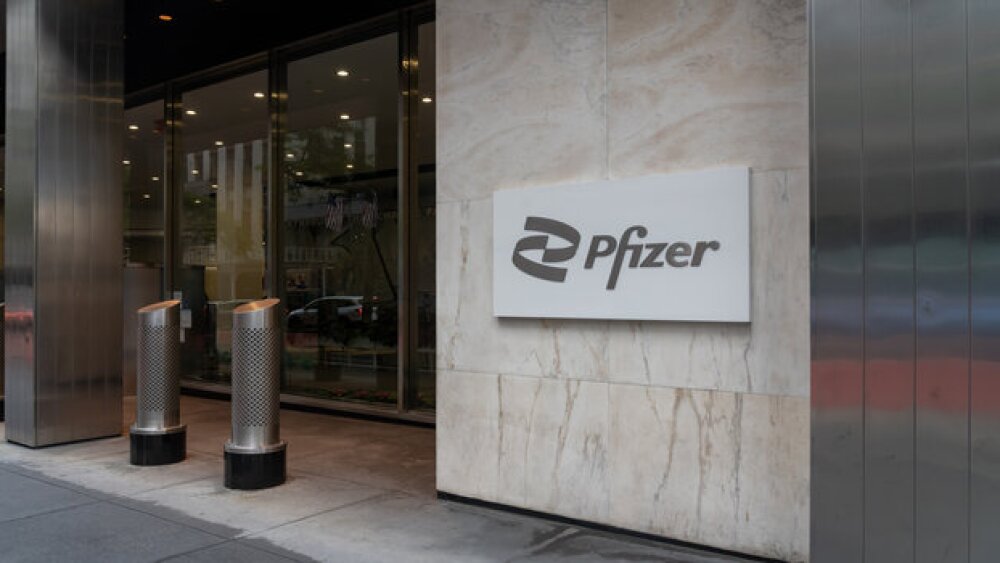Despite increasing antitrust scrutiny across the biopharma industry, the European Commission on Thursday said it found no competitive issues with Pfizer’s buyout of the antibody-drug conjugate company.
Pictured: Entrance to Pfizer’s office in New York/iStock, JHVEPhoto
The European Commission on Thursday unconditionally approved Pfizer’s proposed $43 billion acquisition of antibody-drug conjugate company Seagen, concluding that the deal does not pose competitive concerns.
In Thursday’s announcement, the European Commission (EC) noted that while the companies had overlapping pipeline and marketed products in breast, bladder, colorectal, cervical and lung cancer, their merger “is unlikely to have negative impact on prices” because Seagen’s and Pfizer’s respective offerings are “differentiated and complementary.”
The markets for these cancer types are also “sufficiently competitive,” the EC said.
The EC’s investigation also found that Pfizer and Seagen are unlikely to discontinue, delay or re-orient their overlapping pipeline projects just because of the acquisition, since their research activities “target different segments of patients” and their investigational assets “do not have the same mode of action and concern different lines of treatment.”
The deal will likewise not lead to the loss of innovation, given the high number of players in the oncology space more broadly and the antibody-drug conjugate (ADC) market more specifically.
“Based on its market investigation, the Commission found that the merger would not significantly reduce competition in the markets where their activities overlap within the [European Economic Area],” the EC concluded.
Pfizer and Seagen inked the deal in March 2023, with the former offering $43 billion for the latter’s deep pipeline of promising ADC therapeutics for various cancers, as well as four FDA-approved therapies: Adcetris (brentuximab vedotin) for certain lymphomas, Padcev (enfortumab vedotin) for urothelial cancer, Tivdak (tisotumab vedotin) for cervical cancer and Tukysa (tucatinib) for HER2-positive breast and colorectal cancer.
However, the deal has attracted antitrust scrutiny. The U.S. Federal Trade Commission (FTC) in July 2023 requested more information on the buyout as part of the agency’s review of the acquisition.
Still, the Pfizer-Seagen buyout has not been as contentious as other recent big-ticket mergers.
Amgen’s $27 billion acquisition of rare disease player Horizon Therapeutics got strong initial pushback from the FTC. The agency first moved to block the merger in May 2023, raising concerns in its lawsuit that Amgen might leverage its strong assets to secure favorable formulary placements for Horizon’s therapies.
After several months of a legal back-and-forth between the companies and the agency, the FTC in August 2023 withdrew its challenge to the proposed acquisition and ultimately cleared the deal a few days later. Under a consent order agreement, Amgen is prohibited from bundling any of its products with Horizon’s Tepezza or Krystexxa.
The EC has also been strictly enforcing its antitrust regulations and last week ordered sequencing giant Illumina to divest cancer detection company Grail. The two companies signed their acquisition agreement in September 2020 for $8 billion in cash and stock and closed the deal in August 2021 while the EU was still conducting its review.
The regulator found this to be a “serious infringement” of its merger regulations and handed Illumina a record-breaking $479 million fine.
Tristan Manalac is an independent science writer based in Metro Manila, Philippines. He can be reached at tristan@tristanmanalac.com or tristan.manalac@biospace.com.






